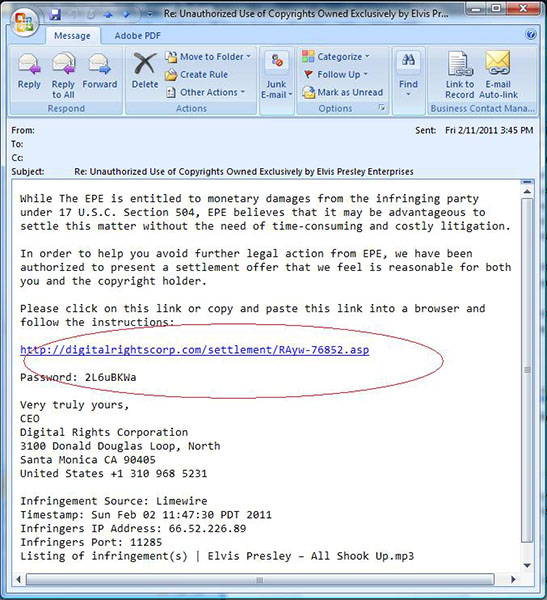BMG And Round Hill Music File Suit Against Cox Communications For Copyright Infringement
It was only a matter of time. Both BMG and Round Hill Music have decided to sue Cox Communications as they feel the ISP isn't doing enough to punish those who pirate materials via its network. For those who believe that these companies have no right to pursue legal action on ordinary citizens, it's hard to not admire why Cox found itself in this situation.
Rightscorp, the copyright enforcement agency that represents both BMG and Round Hill, insists that Cox hasn't adhered to its own written policies when it comes to handling pirates on its network. In total, both BMG and Round Hill have notified Cox of a staggering 200,000 infringers, but it seems Cox just ignored it. BMG's lawyers write, "Despite its published policy to the contrary, Cox's actual policy is to refuse to suspend, terminate, or otherwise penalize subscriber accounts that repeatedly commit copyright infringement through its network in any meaningful numbers."
Further, the complaint states that Cox "actually has taken measures to avoid and stop receiving those notifications", which sounds like the company went out of its way to treat these notifications like spam, and thus just ignored them. Once again, for Cox's customers, this is pretty admirable.

Example email sent to accused copyright infringers by Rightscorp
This is a legal battle that neither side is interested in engaging in, however, as it's not entirely clear which one would win. The Digital Millennium Copyright Act, instated in 1998, effectively requires ISPs to take action should an infringer be spotted, but it's not easy to tell exactly how that infringer gets classified as one - is it enough to hear it from agencies like Rightscorp, or does it have to come from the mouth of a judge?
Should it be the former, then Cox could be in some real trouble, because it seems like it would have had to take action. If so, the loss of customers would be severe, since we're talking about 200,000 here. If it's the latter, and noted infringers have to come from a judge after companies like BMG provide their "proof", then it looks like Cox is safe. Ars Technica notes that Rightscorp has lost $6.5 million since its founding in 2011, so this move could really be a way to try to build itself up before an absolute collapse. Cox on the other hand likely isn't interested in a legal battle, but if it wins, it'd set a major precedent. Plus, it has big pockets to fight this, and it certainly doesn't want to risk losing a customer every time it receives some threat letter from the likes of Rightscorp.

